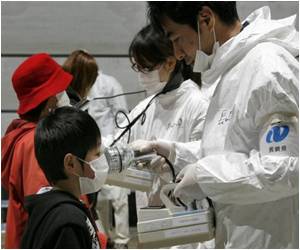The first animal model simulating the eye complications associated with the thyroid condition Graves' disease is being developed by researchers.

Graves' disease is an autoimmune disorder that causes the body to produce antibodies that attack the thyroid gland. The condition causes the thyroid gland to become overactive and produce too much thyroid hormone. If left untreated, it can lead to heart failure or osteoporosis.
Graves' disease is most common in women. About 1 percent of Caucasian women have autoimmune thyroid disease where the thyroid is either over- or underactive. Among those who have Graves' disease, more than half develop eye complications, according to the study's lead author, J. Paul Banga, PhD, of King's College London School of Medicine in the United Kingdom. These complications include Graves' orbitopathy, where swelling of tissue behind the eyes causes them to bulge outward. The condition can cause pain and lead to blindness.
"Current treatment options for eye complications associated with Graves' disease are limited," Banga said. "Better treatments are needed for Graves' orbitopathy to reduce the risks of permanent disfigurement and social stigma. Having an animal model to test preventative treatments could lead to important advances that will ultimately benefit people with Graves' disease."
The condition is currently treated with steroids, which can cause undesirable side effects such as weight gain and osteoporosis.
Although researchers have developed animal models of Graves' disease in the past, these models were challenging to replicate and none were able to simulate the eye problems seen in people with Graves' disease.
Advertisement
"The new animal model opens the door for scientists to conduct needed mechanistic studies and identify preventative therapies to minimize this painful and debilitating condition," Banga said.
Advertisement









